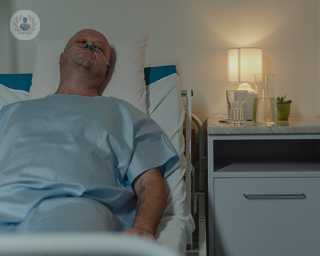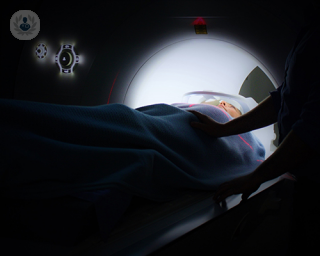
By Mr Nicola de´ Liguori-Carino
03.04.23
Surgeon
Is metastatic colorectal cancer curable?
More than 40,000 people are diagnosed with colorectal cancer (of the colon or rectum) every year in the UK. Here, Mr Nicola de’ Liguori-Carino provides an expert insight into metastatic colorectal cancer, including detection, treatment options and prognosis, among other important points.





